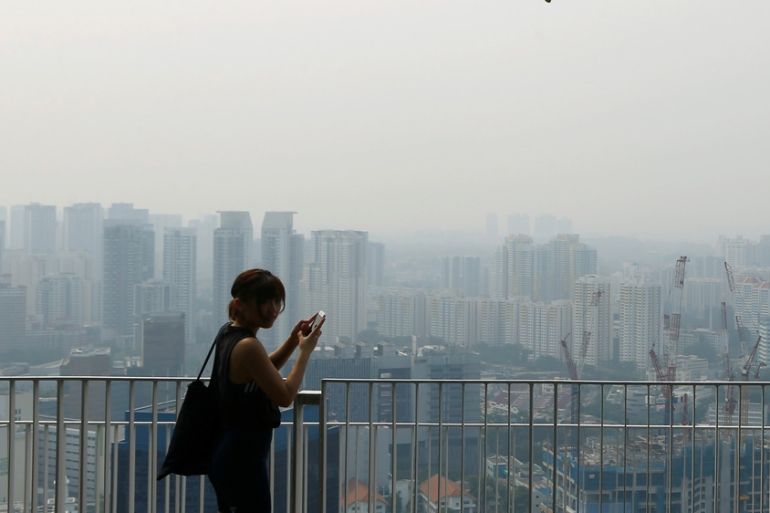Singapore controversial ‘fake news’ law goes into effect
Rights groups, tech companies, academics and journalists opposed the law, which they say threatens free speech.

A “fake news” law, decried by academics, activists and tech giants, has gone into effect in Singapore, despite warnings that the measures could be used to stifle dissent and free speech in the South East Asian island country.
The law, which was passed by Singapore’s parliament in May but took effect on Wednesday, gives government ministers powers to order social media companies to put warnings next to posts authorities deem to be false, order some content to be removed and in some cases block websites deemed to be propagating false information contrary to “public interest”.
Keep reading
list of 4 itemsLawmakers brawl as Georgian Parliament considers ‘foreign agent’ bill
Journalist loses foot after being badly wounded in Israeli attack in Gaza
Press freedom group says representative denied entry to Hong Kong
Despite broad opposition, Singaporean authorities insist the measures are necessary to stop the circulation of falsehoods that could sow divisions in society and erode trust in institutions.
In April, shortly before the bill passed, Prime Minister Lee Hsien Loong, said the legislation was an “essential part” of fighting fake news and hate speech.
“While public education is the first line of defence, legislation is an essential part of the answer, as even [Facebook founder] Mark Zuckerberg has acknowledged,” he said during a speech at the 29th Inter-Pacific Bar Association.
Under the law, if an action is judged to be malicious and damaging to Singapore’s interests, companies could be hit with fines of up to $720,000, while individuals could face jail terms of up to 10 years.
Singapore’s government, which has been accused of stifling dissent in the past, has said the country is particularly vulnerable to fake news because of its position as a global financial hub, its mixed ethnic and religious population and widespread internet access.
Free speech concerns
Opponents worry the new measures could easily be politicised, with all nine members of the opposition Workers’ Party voting against the bill.
Pritam Singh, the head of the opposition, argued in April that the new law would give ministers, who are appointed by the president on the advice of the prime minister, too much power.
The People’s Action Party, which supported the legislation, has been the country’s sole ruling party since it became self-governing in 1959.
|
|
“There is a genuine sense amongst the public that this bill can easily be abused in the wrong hands,” Singh told parliament in the run-up to the bill’s passage.
The opposition party argued that the courts should instead be the arbiters of what is considered false content.
The law was also opposed by the Asia Internet Coalition, an industry association that includes Facebook, Google and Twitter, which said the “bill will impact freedom of expression and curtail the rights of individuals.”
All three tech giants have their headquarters in Singapore.
In public letters, coalitions of journalists and academics have also decried the measures.
Over 170 academics signed a letter saying the legislation had been fast-tracked without proper input from “key civil society actors.”
The law is “likely to have a chilling effect on freedom of expression and academic freedom in Singapore”, they said.
Singapore is currently ranked 151 among 180 countries rated in the World Press Freedom Index of Reporters Without Borders.
In response to concerns, Law and Home Affairs Minister K Shanmugam has said the appeals process would be “fast and relatively inexpensive”, according to the Straits Times.